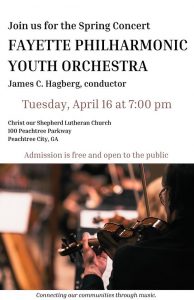At Thursday night’s Fayette County Commission meeting, Commissioner Steve Brown will make his argument to shift transportation SPLOST revenues, earmarking the money for a host of projects that he considers critical.
Brown attempted to make such a pitch at the June 9 commission meeting, but he was halted by Commission Chairman Herb Frady, who brought up a policy that requires commissioners to submit supporting written documents two weeks in advance for items discussed on the regular commission agenda.
Although the commission tabled the matter until Thursday’s regular meeting, it didn’t satisfy a significant crowd, many of whom had come to hear Brown’s proposal.
The resulting fracas resulted in jeering from the crowd and Brown left the meeting early after Frady warned he would be ejected if Brown couldn’t stay “in order.”
The warning came after Brown interrupted comments being made by Commissioner Lee Hearn, who wanted to ask staff a question about the newly-passed legislation that allows the shifting of transportation SPLOST funds with voter approval.
Brown argued at the time that it was unfair that staff could present information at the same meeting in which he was disallowed from speaking on the same topic.
If Brown succeeds in getting three votes in favor, his plan would set off a referendum in which county voters would be asked to approve the money shift.
Brown is pitching that the county use bond financing to fund a number of projects including:
• Repair of the old jail facility;
• A new fire station in Tyrone;
• A new roof for the county’s administrative building;
• Technology replacements and advancements; and
• Other equipment for the fire department and a more aggressive vehicle replacement plan.
Shifting the SPLOST funds from transportation projects only, as authorized by voters in the 2004 referendum would almost certainly kill the under-construction West Fayetteville Bypass, although Brown has urged his fellow commissioners to buy the remaining necessary right of way so the project can be built in the future.
The new law that authorizes the funding shift and subsequent referendum also allows the county to pick and choose what transportation projects it wants to leave undone.











Leave a Comment
You must be logged in to post a comment.